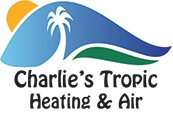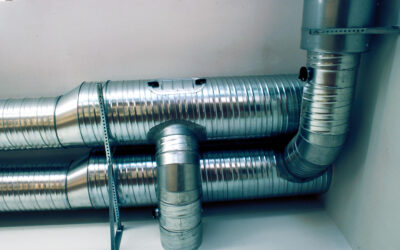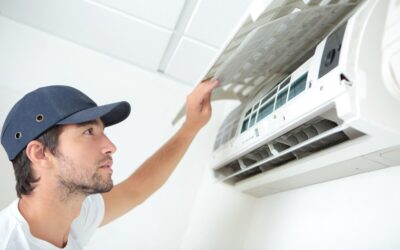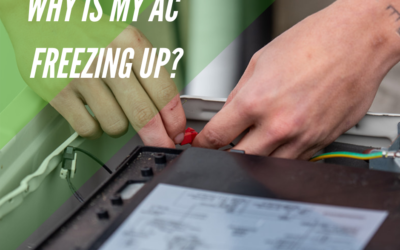Make the most of the calm after the storm;
heed lessons stirred up by Hurricane Matthew
Jacksonville residents watched the storm approach with trepidation for days, survived its ferocious, 60+ mph winds and then breathed a collective sigh of relief when we learned we were spared its cruelest wrath by a mere 30 miles.
Hurricane Matthew stole power from more than 1 million Floridians and caused more than $8 billion in property damage. As Charlie’s Tropic Heating & Air Conditioning soon found out, some of this damage was sustained by compressors, or the “outdoor portion” of air conditioners.
If you haven’t investigated your compressor for damage, be certain to do so now. Finding – and fixing – a problem now could save you time, worry and additional expense later. Also be sure to follow other “post-storm” steps recommended by the American Red Cross, the Federal Emergency Management Agency and our own Florida State University. Many “storm watchers” agree: people who live in the path of a powerful storm seem to pay more attention to precautionary measures; they’re not always certain what to do after the storm has passed.
Inspect your compressor
Much of the compressor damage Charlie’s sees stems from extenuating circumstances, such as fallen tree limbs, rather than wind damage. We attribute this to the fact that air conditioners are sturdy machines that are built to withstand brutal outdoor elements. And a hurricane is about as brutal a force as nature can deliver.
Be sure to inspect your compressor in the full light of day when you can assess it for:
- Signs of exterior damage, including dents, missing components and ruptured refrigerant lines
- Signs of electrical or smoke scars, which could indicate a lightning strike
- Surrounding debris, which should be removed so that air flow is not obstructed
- Any portion that remains submerged in water
If you’re in doubt about the integrity of your compressor, do not take chances and do not turn on your air conditioner. Call Charlie’s immediately so that we can inspect the unit and ensure that it is safe to operate. We make emergency repairs 24/7, and if your safety is at risk, we consider it an emergency.
Take smart steps immediately following a storm
As a resourceful Floridian, you probably made many of the right moves in the wake of Hurricane Matthew. If not, tend to them now – and post this list someplace for easy reference. Peak hurricane season might be over for now, but another storm lies in our future.
Immediately following a storm, be sure to:
- Stay indoors until you verify from a news or weather station that it is safe to go outdoors.
- Refrain from returning home after an evacuation until local officials have cleared you to do so.
- Stayed tuned to a Jacksonville news station for storm updates and other public safety information. Local roads might be closed because of flooding or the area might be under a boil order if the water supply has been compromised.
- Contact family members and friends to reassure them that you are safe.
- Conduct a top-to-bottom inspection of your home to ensure that it is structurally sound and safe to inhabit. Wait for the light of day and/or more calm conditions to conduct a more thorough inspection. Call emergency officials if you smell gas or find life-threatening damage.
Take smart steps in the days after a storm
Generator sales often surge in the weeks following a hurricane. After enduring days without electricity because of Hurricane Matthew, you may have made the same purchase. In the first 24 hours and few days after a storm, also be sure to:
- Contact FEMA at 800-621-3362 or visit the agency website as soon as possible if there is a presidential disaster declaration.
- Practice sensible food safety. Refrigerated food should be safe to consume as long as the power is out no longer than four hours, the U.S. Department of Health & Human Services says. Otherwise, err on the side of caution and follow the edict if in doubt, throw it out.
- Conduct an inspection of the outside of your home, and take pictures for insurance purposes of any damage.
- Do what you can to prevent further damage to your home, such as putting a tarp over broken windows or doors. (Some insurers do not cover damage that occurs after a storm – a point that underscores the wisdom of rereading your homeowner’s insurance policy.)
- Do not touch downed power lines. They could be live and potentially deadly.
- Stay away from flooded areas and especially rushing water. Never try to guess the true height of flood water. “Just 6 inches of moving water can knock you down, and fast-moving water can sweep your vehicle away,” FEMA says.
- After drying up water in your home, take steps to prevent the growth of mildew and mold. A handy guide from FEMA can show you how, step by step.
- Reach out to only licensed professionals for repairs – like those at Charlie’s Tropic Heating & Air Conditioning. Hurricane Matthew made a name for itself by becoming the lengthiest major hurricane to strike the Atlantic basin after September 25. Charlie’s continues to make a name for itself by being the most trusted and reliable air conditioning service in the Jacksonville area – and with a reputation for excellence that has blown its competitors right off the map.




0 Comments